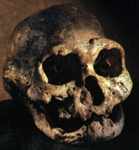
Matthew 25 34-40
25:34 Then shall the King say unto them on his right hand, Come, ye blessed of my Father, inherit the kingdom prepared for you from the foundation of the world: 25:35 For I was an hungred, and ye gave me meat: I was thirsty, and ye gave me drink: I was a stranger, and ye took me in: 25:36 Naked, and ye clothed me: I was sick, and ye visited me: I was in prison, and ye came unto me. 25:37 Then shall the righteous answer him, saying, Lord, when saw we thee an hungred, and fed thee? or thirsty, and gave thee drink? 25:38 When saw we thee a stranger, and took thee in? or naked, and clothed thee? 25:39 Or when saw we thee sick, or in prison, and came unto thee? 25:40 And the King shall answer and say unto them, Verily I say unto you, Inasmuch as ye have done it unto one of the least of these my brethren, ye have done it unto me.
I am not a Christian and have never been. Yet when I read the New Testament, I felt that these verses were the very best advice I had ever seen on compassion and empathy. (I also felt puzzled that the same Jesus, in the very next verse, condemned those who hadn’t been compassionate enough to eternal hellfire-what? Where is the compassion in that?)
But was Jesus the source of compassion itself?
According to many Christians, the answer is yes. As outstanding a scientist, Francis Collins, the director of National Institute of Health, names the existence of compassion as one of the main reasons for his faith:
How is it that we, and all other members of our species, unique in the animal kingdom, know what’s right and what’s wrong? In every culture one looks at, that knowledge is there.
Where did that come from? I reject the idea that that is an evolutionary consequence, because that moral law sometimes tells us that the right thing to do is very self-destructive. If I’m walking down the riverbank, and a man is drowning, even if I don’t know how to swim very well, I feel this urge that the right thing to do is to try to save that person. Evolution would tell me exactly the opposite: preserve your DNA. Who cares about the guy who’s drowning? He’s one of the weaker ones, let him go. It’s your DNA that needs to survive. And yet that’s not what’s written within me.
Lewis argues that if you are looking for evidence of a God who cares about us as individuals, where could you more likely look than within your own heart at this very simple concept of what’s right and what’s wrong.
Collins describes evolutionary science very inaccurately. Evolution can indeed act in strange and counter-intuitive way. And yes, evolution can indeed shape cooperation and compassion as a way of preserving and transmitting your genes. (I am really puzzled if Collins is ignorant on what he is talking about, or if he is being consciously mendacious.)
But the fossil records gives the lie to Collins’ opinion.
Investigators studying bones of Homo Erectus in the republic of Georgia found something very intriguing:
According to a report published today in the journal Nature, the remains are from an individual who spent the last years of his life with only one tooth. This shortcoming may have left him dependent on the kindness of others in order to find sufficient sustenance.
The site at Dmanisi, Georgia, has in recent years provided multiple fossil discoveries that suggest the presence of members of our genus, Homo, roamed outside of Africa 1.7 million years ago. In the new work, David Lordkipanidze of the Georgian State Museum in Tbilisi and his colleagues describe a skull and jawbone from a hominid male who had lost all but one tooth. The tooth sockets had been resorbed into the skull, suggesting that he had lost the teeth several years before dying.
The skull of this old man is humanlike but small, but the remarkable feature is the mouth. Not only are there no teeth, but nearly all the sockets are smooth, filled in by bone that grew over the spaces. The jaws look like two crescent moons. Although it’s hard to be sure of his age, ‘it looks like he was maybe about 40, and the bone regrowth shows he lived for a couple of years after his teeth fell out,’ says Professor Lordkipanidze. ‘This is really incredible.’ How did the toothless old man survive, unable to chew his food? Maybe his companions helped him, says Lordkipanidze. If so, those toothless jaws might testify to something like compassion, stunningly early in human evolution.
Nice try, Francis Collins and C.S. Lewis. Better luck next time.
